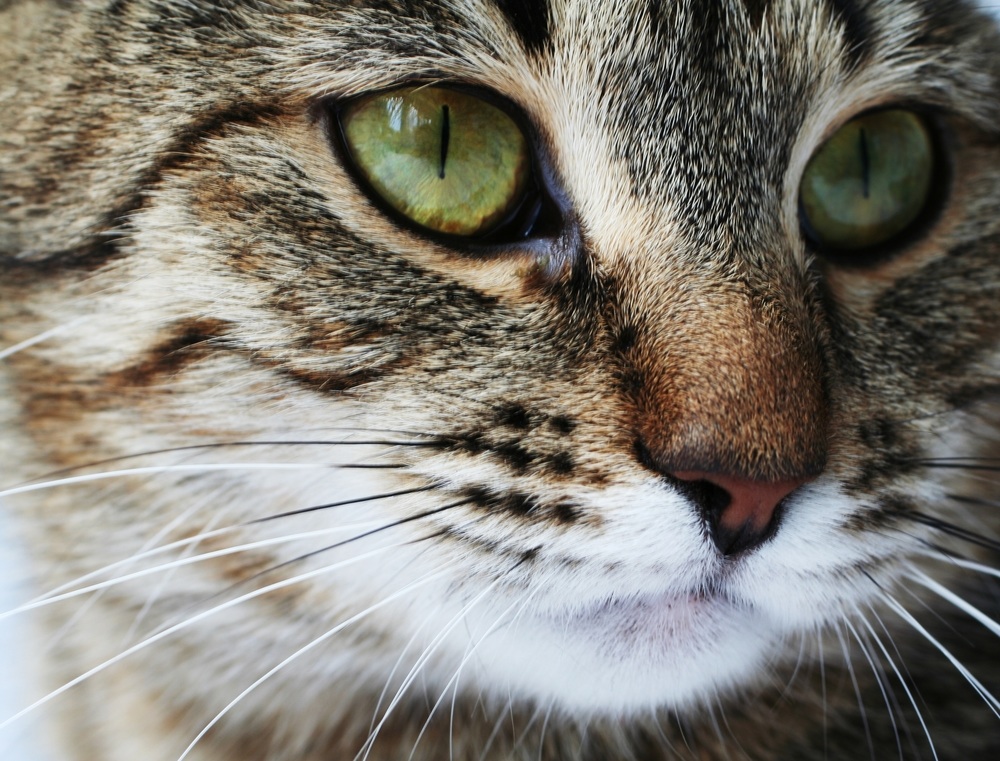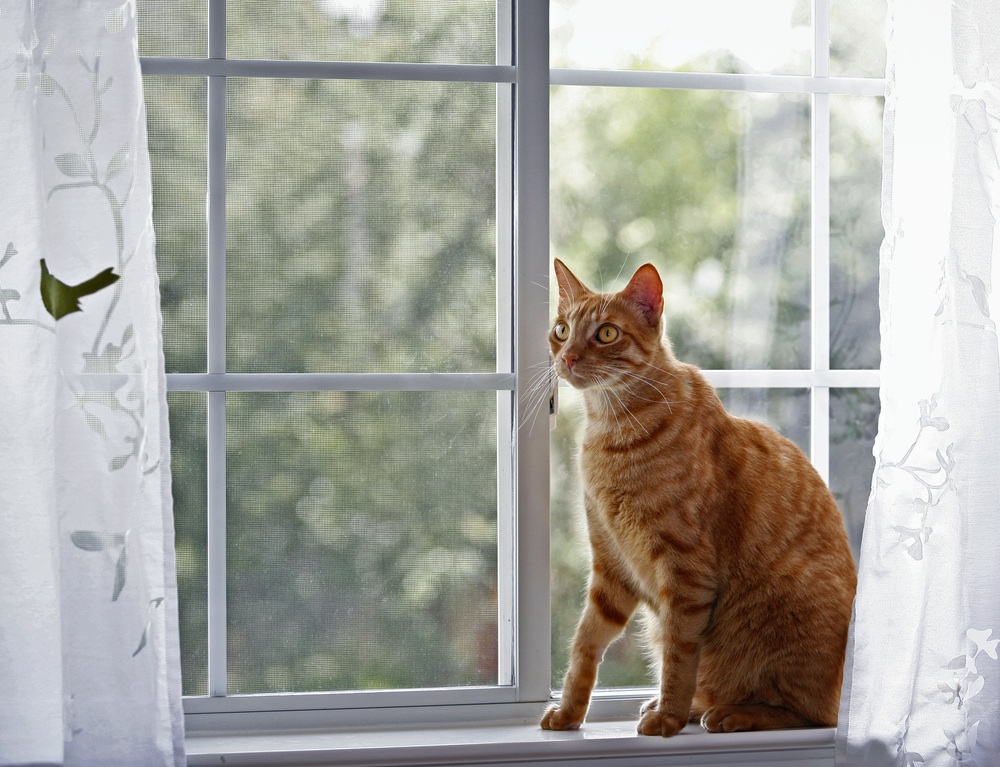Safety in the home

The inquisitive nature of cats, combined with their sensitive metabolism, means that there are a number of hazards lurking in the average household which could endanger their health. Some of these may be more obvious than others, with kittens being especially at risk, compared with older cats, partly because their smaller size means they can slip through smaller gaps and remain out of sight more easily. Try to minimise the risks from the outset therefore, when you acquire a cat.
Hazardous living
The kitchen is an especially dangerous part of the home for cats, as their ability to jump up means that they can burn their paws by landing or walking over a hot hob, or by pulling over the flex of a kettle of boiling water. The cat's desire to find a snug, warm spot to sleep can attract it through the open door of a clothes' drier, with a potentially fatal outcome if you do not check here before closing the door and switching on the machine.
Chewing can be equally hazardous for young cats which are teething, if they decide to use a live piece of electrical cable for this purpose. The dagger-like points of their canine teeth are unlikely to be a match for the outer coating of flex.
It is a good idea to keep upstairs windows closed, especially if you live in a high-rise block. Kittens especially may not otherwise appreciate the danger, and can fall out of the window or off a balcony as a result. Take particular care if you try to grab a kitten close to the edge under these circumstances, as it may slip from your grasp.

It is often better to try to persuade your pet to venture back indoors of its own accord, by rolling a toy just out of its reach. Placing wire mesh around the balcony supports should reduce the likelihood of a kitten slipping between the gaps of the balustrade.
Did you know?
If you see your cat chewing at electric cabling, be sure to switch off the plug and disconnect it first, rather than trying to take the cable out of the cat's mouth. This could cause you both to be electrocuted.
Cats have been known to fall from heights of as much as 61m (200ft) and survive, thanks to the ability of their feet to act as shock absorbers.
Aspirin is deadly to cats, so never be tempted to treat your pet from your own medicine cabinet. Cacti represent a possible hazard if your cat brushes past the spines as these can become stuck in its fur. Some other household plants such as ivy could be poisonous if eaten.
Rubbish bags
Always be very careful when disposing of rubbish, because this can represent a serious hazard to cats. Both in the home and outside, cats will scavenge for tasty left-over items of fish and meat, even if these are comprised of little more than bones. Thanks to their keen sense of smell, they can locate such items in rubbish sacks, ripping the bag apart with ease.
There is then a real risk that your cat will consume bones, which are likely to be hazardous, and could become stuck in its throat. Another danger is that your pet could slice its feet or even its tongue on cans or lids, if it paws at or licks them.